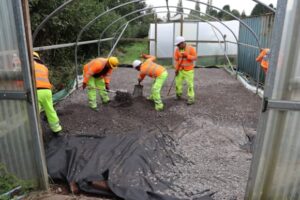Major infrastructure projects such road improvements and offshore wind farms will be delivered more quickly through a new fast-track planning route, the Secretary of State for Levelling Up Greg Clark announced today (30 August).
New powers will mean shorter deadlines can be set for examinations of Nationally Significant Infrastructure Projects – speeding up decisions and getting projects built more quickly. The relevant Secretary of the State – for example for Energy, Transport, Environment or Levelling Up – will decide whether to put the shorter deadline in place.
This also means decisions on smaller (non-material) changes to projects that have already been approved can be made much more quickly – currently these can take up to 16 months, sometimes causing significant delays to delivery.
Levelling Up Secretary Greg Clark said: “Particularly in a time of high inflation, things need to be done more quickly or costs of major infrastructure projects will rise. These changes will help deliver new infrastructure more quickly, by speeding up the planning process which often moves too slowly.”
The government will make the changes to the Nationally Significant Infrastructure Projects process through amendments to the Levelling Up and Regeneration Bill.
Today’s announcement is part of plans to speed up the planning process for large-scale projects and builds on efforts in the government’s Energy Security Strategy to make sure the country is building the infrastructure it needs faster than before.
More than £750,000 has also today been awarded to 10 council-led projects to support innovation in ensuring the needs of local communities are reflected in the process.
Councils and local communities will continue to play a key role in the planning process, including by producing local impact reports that represent the views of residents and must be taken into account. Only suitable projects will go through the new fast track process.
The funding for 10 council-led projects will go to councils in Somerset, Cumbria, Essex, Suffolk, Leicestershire, North Yorkshire, Cambridgeshire, West Sussex and Norfolk:
Norfolk County Council are building a virtual system that will log information about local NSIPs including timelines, deadlines, contacts and meetings for other local authorities and applicants to see.
Cambridgeshire County Council and Suffolk County Council are each producing a centre of excellence, helping to capture and disseminate best practice – allowing other authorities to benefit from their considerable experience.
Selby District Council and North Yorkshire County Council are collaborating to develop a multi-disciplinary environmental framework which sets out the local authority requirements for submitting an NSIP application. These will be around landscape, biodiversity, environmental health and heritage. This framework will help to bring forward multiple NSIPs in one place and could be used by applicants, the council and the Planning Inspectorate at application and examination stages.
























